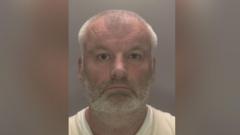
The 2025 Eurovision Song Contest final is just days away, with musical acts ranging from the sublime to the ridiculous set to go head to head in Switzerland.
Longtime fans of the annual extravaganza will know that the musicians preparing to entertain the viewing public do not only hail from countries in Europe.
As well as the ‘Big Five’ mainstays of France, Germany, Italy, Spain, and the United Kingdom – who pay the most towards the organisation of the event and so are fast-tracked straight to the final – there are a number of countries in the mix who are notably not in Europe.
So, which countries have proved to be the exception to the ‘Euro’ in Eurovision and why?
Why do Israel and Australia compete in Eurovision?
Every year, questions are raised about why exactly countries like Israel and Australia are among the acts trying to take home the glass microphone trophy.
Yet being included in the contest doesn’t come down to geography. Instead, it is a question of membership in the European Broadcasting Union (EBU), which organises the competition. Every country that is a member state of the EBU is eligible to take part, which includes both Israel and Armenia.

Israel has been an EBU member since 1957, although it didn’t take part in Eurovision until 1973, while Armenia joined in 2005 and made its debut the following year.
Membership of the EBU also allows transcontinental countries such as Azerbaijan and Georgia to throw their hats into the bedazzled ring.
Meanwhile, Australia wangled its way in on account of having a dedicated fanbase Down Under, as well as close ties to the EBU. The country was first included as a ‘special guest’ for the 60th contest in 2015 and has been back every year since.
Why is Israel’s participation controversial?
Israel’s involvement in the contest proved hugely controversial last year, and their inclusion again this year has already prompted an open letter to the EBU calling for their ban. The letter was signed by 72 musicians, lyricists, and performers associated with the contest, including the UK’s 2023 entry Mae Muller.


The letter alleged the broadcaster was ‘complicit in Israel’s genocide against the Palestinians in Gaza and the decades-long regime of apartheid and military occupation against the entire Palestinian people’. Israel has rejected accusations of genocide.
The EBU emphasised that Israel is allowed to compete because the country is represented by Kan, the public broadcaster, not its government.
Kan has since filed a complaint with Swiss police after a man holding a Palestine flag was seen doing a ‘throat-slitting’ gesture at the opening ceremony while the Israeli act Yuval Raphael, 24, walked past.
Raphael survived the October 7 attack at the Nova music festival near the Gaza border and has managed to secure a place in the competition with the song New Day Will Rise.

Why have countries applied but failed to get on Eurovision?
There have been murmurs in the past about Australia’s coveted ‘special guest’ slot being extended to other eligible countries who are associate members of the EBU, such as Canada, China, Japan, and the USA.
But so far nothing has come of it – despite some best efforts. China expressed its interest in 2016, but the EBU then banned a Chinese broadcaster from airing Eurovision over its use of LGBTQ+ censorship in 2018.
New Zealand also expressed interest in joining Eurovision in 2023, but so far, the coveted invitation has not been extended.
Other countries, including Liechtenstein, Kosovo, Kazakhstan, Palestine, and Qatar, have also applied for membership in the past but have not yet been granted access to the stage.
Given that the final already has a runtime that clocks in at around four hours, the organisers might be reluctant to add more participants.
Got a story?
If you’ve got a celebrity story, video or pictures get in touch with the Metro.co.uk entertainment team by emailing us [email protected], calling 020 3615 2145 or by visiting our Submit Stuff page – we’d love to hear from you.







.jpg.webp?itok=1zl_MpKg)





 Bengali (Bangladesh) ·
Bengali (Bangladesh) ·  English (United States) ·
English (United States) ·